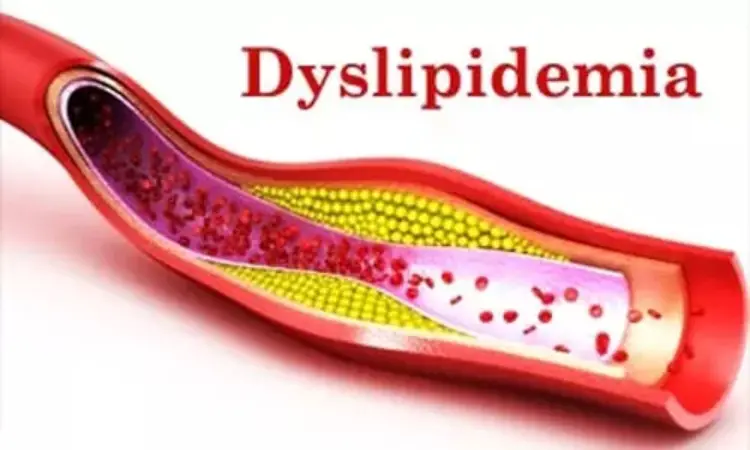- Home
- Medical news & Guidelines
- Anesthesiology
- Cardiology and CTVS
- Critical Care
- Dentistry
- Dermatology
- Diabetes and Endocrinology
- ENT
- Gastroenterology
- Medicine
- Nephrology
- Neurology
- Obstretics-Gynaecology
- Oncology
- Ophthalmology
- Orthopaedics
- Pediatrics-Neonatology
- Psychiatry
- Pulmonology
- Radiology
- Surgery
- Urology
- Laboratory Medicine
- Diet
- Nursing
- Paramedical
- Physiotherapy
- Health news
- Fact Check
- Bone Health Fact Check
- Brain Health Fact Check
- Cancer Related Fact Check
- Child Care Fact Check
- Dental and oral health fact check
- Diabetes and metabolic health fact check
- Diet and Nutrition Fact Check
- Eye and ENT Care Fact Check
- Fitness fact check
- Gut health fact check
- Heart health fact check
- Kidney health fact check
- Medical education fact check
- Men's health fact check
- Respiratory fact check
- Skin and hair care fact check
- Vaccine and Immunization fact check
- Women's health fact check
- AYUSH
- State News
- Andaman and Nicobar Islands
- Andhra Pradesh
- Arunachal Pradesh
- Assam
- Bihar
- Chandigarh
- Chattisgarh
- Dadra and Nagar Haveli
- Daman and Diu
- Delhi
- Goa
- Gujarat
- Haryana
- Himachal Pradesh
- Jammu & Kashmir
- Jharkhand
- Karnataka
- Kerala
- Ladakh
- Lakshadweep
- Madhya Pradesh
- Maharashtra
- Manipur
- Meghalaya
- Mizoram
- Nagaland
- Odisha
- Puducherry
- Punjab
- Rajasthan
- Sikkim
- Tamil Nadu
- Telangana
- Tripura
- Uttar Pradesh
- Uttrakhand
- West Bengal
- Medical Education
- Industry
Is dyslipidemia a potential post-acute sequela of SARS-CoV-2 infection?

USA: A recent study published in The Lancet Diabetes & Endocrinology adds to growing evidence that COVID-19 survivors may be at higher risk for cardiometabolic disorders. The findings indicate increased 1-year burdens and risks of incident use of lipid-lowering medications and incident dyslipidemia in the post-acute phase of COVID-19 infection.
"Post-acute care for COVID-19 patients should involve scrutinizing dyslipidemia as a potential post-acute sequela of SARS-CoV-2 infection," the researchers wrote in their study.
A few clinical studies with short follow-ups and non-clinical evidence has suggested an increased dyslipidemia risk in the post-acute phase of COVID-19, defined as more than 30 days after SARS-CoV-2 infection. However, there is no availability of detailed large-scale controlled studies with longer follow-ups and in-depth evaluation of the burdens and risks of incident dyslipidaemia in the COVID-19 post-acute phase. Therefore, Evan Xu, Veterans Research and Education Foundation of Saint Louis, Saint Louis, MO, USA, and colleagues aimed to investigate the 1-year burdens and risks of incident dyslipidaemia in the post-acute phase of COVID-19 in people who survive the first 30 days of SARS-CoV-2 infection in a cohort study.
For this purpose, the researchers used the US Department of Veterans Affairs national healthcare databases to build a cohort of 51 919 participants with COVID-19 tests who survived the first 30 days of infection between 2020 and 2021. It also consisted of a non-infected contemporary control group (n=2 647 654) enrolled between 2020 and 2021 and a historical control group (n=2 539 941) that enrolled patients between 2018 and 2019. Control groups did not have SARS-CoV-2 infection, and people in all three cohorts were free from SARS-CoV-2 infection before enrolment.
The authors estimated the burdens and risks of incident dyslipidaemia outcomes in mutually exclusive groups as per the care setting of the acute infection (i.e. participants who were hospitalized, non-hospitalized, or admitted to ICU (intensive care unit) during the acute phase of SARS-CoV-2 disease.
The study led to the following findings:
· Compared with the non-infected contemporary control group in the post-acute phase of the SARS-CoV-2 infection, those in the COVID-19 group had higher burdens and risks of incident dyslipidaemia, including total cholesterol (TC) greater than 200 mg/dL (hazard ratio [HR] 1·26; burden 22·46 per 1000 people at one year), triglycerides greater than 150 mg/dL (1·27), LDL cholesterol greater than 130 mg/dL (1·24), and HDL cholesterol lower than 40 mg/dL (1·20).
· The burden and risk of a composite of these abnormal lipid laboratory outcomes were 39·19 and 1·24, respectively.
· burden and risk of incident lipid-lowering medications use (HR 1·54; burden 25·50) also increased.
· A composite of any dyslipidemia outcome (lipid-lowering medications use or laboratory abnormality) yielded an HR of 1·31 and a burden of 54·03.
· The burdens and risks of these post-acute outcomes increased in a graded fashion, correlating with the severity of COVID-19 infection's acute phase (i.e., whether patients were non-hospitalized, hospitalized, or admitted to ICU).
· The findings were consistent in analyses comparing the COVID-19 group to the non-infected historical control group.
"Our findings indicate that patients who survive the first 30 days of COVID-19 infection show an increased burden and risk of incident lipid-lowering medications use and incident dyslipidemia," the researchers wrote in their study. "In people who were non-hospitalized during the acute phase of infection, these risks and burden were evident and increased in a graded fashion based on the severity of acute infection."
"The body of evidence suggests that dyslipidaemia should be considered a component of the multifaceted long COVID," they conclude. "Post-acute care strategies of COVID-19 patients should integrate dyslipidaemia's screening and management."
Reference:
Xu E, Xie Y, Al-Aly Z. Risks and burdens of incident dyslipidaemia in long COVID: a cohort study. Lancet Diabetes Endocrinol. 2023 Jan 6:S2213-8587(22)00355-2. doi: 10.1016/S2213-8587(22)00355-2. Epub ahead of print. PMID: 36623520.
Dr Kamal Kant Kohli-MBBS, DTCD- a chest specialist with more than 30 years of practice and a flair for writing clinical articles, Dr Kamal Kant Kohli joined Medical Dialogues as a Chief Editor of Medical News. Besides writing articles, as an editor, he proofreads and verifies all the medical content published on Medical Dialogues including those coming from journals, studies,medical conferences,guidelines etc. Email: drkohli@medicaldialogues.in. Contact no. 011-43720751


